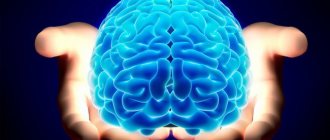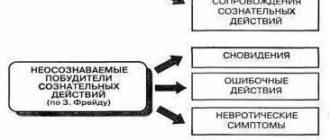Hypnosis as a healing method has been used since ancient times. These techniques were mastered mainly by shamans, sorcerers, healers, and clergy. With the development of medicine, real doctors began to pay attention to these techniques. In the eighteenth century, the first attempts were made to explain hypnosis from a scientific point of view. Subsequently, with the advent of new knowledge about the structure and functioning of the brain, the theory of hypnosis also changed, acquiring an increasingly scientific character. The concepts of conscious and unconscious appeared. At the present stage, hypnosis is a recognized technique used in psychotherapy to treat patients with various diseases.
Hypnosis: what is it?
Psychiatry in our time is gradually becoming aligned with conventional medical science, losing the specificity of discipline, and acquiring a more organized system. Psychiatrists from all countries are trying to combine their knowledge in order to apply the technique as effectively as possible in the treatment of various mental disorders.
The most modern methods in the field of treatment of psychological diseases are being improved. To do this, the main features in the functioning of the brain in patients who are treated by psychiatrists are identified and compared with the functioning of the brain of healthy people. New methods for diagnosing and treating mental illnesses are being developed and improved. The long-known method of treatment with hypnosis has now been greatly improved and is successfully used in the treatment of mental illness.
Attention! Hypnosis has been used to treat mental illnesses since ancient times. In ancient Egypt, priests successfully treated many diseases using hypnosis. Well, the very concept of the word “hypnosis” appeared in the 19th century.
For a long time, traditional medicine did not take seriously the methods of treating mental illness with hypnosis. The patients did not have the opportunity to experience the beneficial course of physical influence and a favorable result. And this method of treating mental illness was considered simply an accident.
Following research into the treatment of hysteria using the method of hypnosis, this method was approved and began to be used in medicine at the end of the 19th century. It has become widely used in the treatment of depressive disorders, panic attacks, and mental illness. Also, with the help of hypnosis, they began to treat people addicted to alcohol and drugs.
Directions of hypnotherapy
In the case of mental illnesses, hypnosis may often be the only possible method of treatment, in contrast to physiological ailments.
The patient is simply instilled with new, correct attitudes, and at the same time changes in his condition are constantly monitored in order to respond in time to changes or exacerbations. Hypnotic effects can be effective in combating:
- phobias;
- addictions of various kinds and bad habits;
- neuroses;
- stress and its consequences;
- anorexia (having a psychological nature);
- schizophrenia and psychosis;
- pain for no apparent reason, which cannot be determined even after a thorough examination.
But hypnotherapy is often complicated by the fact that the patient does not want to receive treatment, has no idea how to independently cope with the symptoms that bother him, and, as a result, often behaves aggressively or, conversely, withdraws.
Treatment of mental illness with hypnosis
There is such a concept in psychiatry as “clinical hypnosis.” This is a kind of individual conversation that takes place between the doctor and the patient. There are two differences in hypnosis for treating mental illness. The first is the “classical” method. The second is “Ericksonian” hypnosis, which was named after its creator. He was a psychiatrist. His name is Milton Erickson. The peculiarity of this method is to study and analyze memories from certain episodes of his life when working with a patient. You need to tell him stories from his life, present your version with which he will agree. This can help as much as possible in the treatment of mental illness.
There is an opinion that hypnosis in psychiatry has therapeutic and healing properties. This appears to be because illness increases tension in muscle tone, and hypnosis leads to relaxation of the muscles throughout the body, which has a beneficial effect on the person. Therefore, the method has been successfully used to treat mental illnesses.
Important! The foundations of many mental illnesses are hidden in the depths of the subconscious.
With the help of hypnosis, the patient can distract himself from the present reality, thus plunging into the depths of his subconscious. That is why the effectiveness of this method is noted, because a person can remember a certain incident in his life, which provoked the development of his illness. Thanks to this, it is possible to correct the consequences that brought him to this state. For this purpose, mental illness is treated with hypnosis.
But still, despite the great advantages of this method, there are also contraindications to its use for the treatment of mental illnesses. If a person has acute somatic diseases, then the hypnosis method cannot be used.
Impact on humans
What diseases does hypnosis treat? Hypnosis in psychotherapy and its successful treatment of mental illness consists of placing a person temporarily in a state between sleep and wakefulness. Then his thinking is inhibited, but the person is able to perceive everything that is said to him. Thus, the hypnologist can have some influence on a person, instilling in him this or that thought, which the patient subsequently perceives as his own. This method is effective because with its help, the dormant internal forces that are inherent in it by nature awaken in the human body. And the body itself begins to develop those functions that it needs to recover from mental illness.
In order to put a person into a trance, hypnologists mainly use the chattering method, a pendulum, etc.
What are the signs that a person is in a trance when treating mental illness with hypnosis:
- A person’s gaze is fixed on a specific object or directed at one point;
- The swallowing reflex is slow;
- Slow eye blinking;
- The person's pupils are dilated;
- Complete relaxation of muscles, including facial ones;
- His movements are slow;
- His pulse is reduced, his heart beats at a slow pace;
- Breathing becomes slow, as during sleep.
A state of sleep or deep trance is a more effective method than simple hypnosis in the treatment of mental illness. In this case, the patient experiences a speedy recovery during the treatment of mental illness. But not every person can enter such a trance state.
Attention! With the help of hypnosis, you can achieve the elimination of various experiences, psychological trauma, and all sorts of negative manifestations, which are often the basis for the manifestation of enuresis. Hypnosis will help suppress fears and anxieties and overcome addiction.
The big advantage of using hypnotic assistance is that the patient does not need to put in absolutely any effort to achieve effective results.
Difficulties and conditions for conducting sessions
Preschool children cannot clearly express their fears and psychological problems. The cerebral cortex, which is not yet fully developed, is responsible for this.
It is difficult for them to listen to themselves and adequately answer the doctor’s questions. For this reason, children under 7 years of age are often not treated with hypnosis.
As an exception, sessions for such children are carried out subject to the establishment of a trusting relationship between the patient and the doctor. The result is influenced by the personality of the therapist and how he knows how to feel a particular patient.
A hypnotherapist must have important qualities:
- confidence;
- control, management of emotions;
- absence of doubts about the effectiveness of its activities;
- professionalism.
Before the actual treatment, a consultation meeting between the doctor and the patient is held. The doctor determines how suggestible the future client is and whether he is ready to cooperate. The doctor can start the dialogue with the following words:
There is such a thing as hypnotizability. This is the ability to go into trance. In patients with a high degree of it, the effect of treatment is always higher.
If the result is negative, the sessions are useless. It's better to wait 1-2 years and try again.
The success of hypnosis also depends on the willingness of the parents to leave the child alone with the attending physician. Typically, children's fears are a consequence of the individual behavior of their parents. Their attitudes, instilled in their children, do not allow young patients to adequately assess and experience their emotions or fears.
A restriction during treatment is the ban on filming or photographing the session. This distracts the baby and the hypnologist, and the effect is canceled.
The benefits do not define child hypnosis as a solution to all psychological problems. Severe somatic cases require drug therapy. It is better to use it together with hypnosis. Sessions are not performed if the patient suffers from serious mental disorders.
Using hypnosis to treat enuresis in children
The method of hypnotic influence on the problem of enuresis is based on the fact that most often the emission of urine occurs involuntarily at night, when the child is sleeping. Therefore, it is better to correct this problem when the child is in a state of sleep with the help of hypnosis, which helps to change his understanding and perception. This method is not new and has already been used for decades.
Before starting treatment of mental illness with this method, the child is explained how his genitourinary system works. It is checked how much the child understood and perceived the story being presented. Next, the child’s spoken vocabulary will be used to formulate thoughts that will be instilled in him during the session. Thus, this helps to maximally adapt to his perception, and this will strengthen the process of suggestion and treatment of mental illness.
The child, in the presence of his parents, will become familiar with the work that the hypnologist will do with him. The story will be told to him at the level of his perception. This is done so that the child does not resist hypnosis, which will allow it to be as effective as possible. For children under 8 years of age, this is explained as a normal nap during the day. The child will fall asleep and wake up, but this dream will be with one difference, it will be a therapeutic dream.
Important! The main task in treating mental illnesses of a small patient with hypnosis for enuresis is to instill the idea that when the child has the urge to urinate while the child is sleeping, he should wake up. Even if these are cases of urinary incontinence during the day, then, also with the help of hypnosis, the baby will be able to control the functions of his body and bladder.
About two hours before the start of the session, the small patient must drink a liquid, which will cause the urge to urinate during the session.
A hypnosis session will consist of the following stages:
- The child will fall into a hypnosis-induced sleep;
- Slowly transitions from hypnotic sleep to natural sleep;
- He will be given the idea, based on his perception, that when he begins to feel the urge to urinate, he needs to wake up.
This sequence will make his sleep more stable, and a subsequent reaction to awakening with the urge to urinate will be formed.
Is medication treatment for stress effective?
The mechanism of action of antidepressants is such that the effect does not appear immediately, sometimes it takes weeks, and while the drug is working, the doctor selects other drugs and therapy to normalize the condition. Sometimes a medicine does not give the desired effect and you have to choose another one. This is indeed not easy, therefore both the choice of remedy and the determination of the dosage are possible only after a comprehensive examination. Strong drugs such as antipsychotics are also sold by prescription. Neuroleptics reduce the intensity of the reaction to external stimuli, help relieve excitement - in other words, “slow down”. The drugs have a lot of contraindications and side effects. The latter include, for example, addiction. They are prescribed only when the benefits significantly outweigh the side effects. There is no magic pill that would solve all problems yet. Anxiety, irritability, panic attacks and depression are just manifestations of the influence of some traumatic factor. This is exactly the case when you need to look for the cause, and not eliminate the consequences.
Difficulty in application
Like any method in psychotherapy, it is like moving by touch. Since even the most experienced psychologist with extensive experience in using this method of treating mental illnesses must take into account that each patient requires an individual approach. Since the reasons are different for everyone and the method may vary slightly depending on each case. There are also various difficulties in the use of hypnosis and the treatment of mental illness using its method. This method can really help one person, but another simply does not believe it and therefore will not accept this method as therapeutic.
Hypnosis treatment of mental illness is carried out by a professional who has knowledge in areas such as psychotherapy, psychiatry, and medical psychology. The specialist must have skills in hypnotization. A specialist skilled in hypnosis must understand the peculiarities of the occurrence of such a condition in the patient and study him as an individual.
Attention! Hypnosis treatment of mental illness cannot be used for people with an acute form of the disease or if the disease is in the acute stage.
Getting rid of diseases
Hypnotherapy can cure a huge number of diseases and their symptoms. The specialist takes into account the physiological and psychological qualities of the patient.
Treatment with hypnosis helps to cope with the following problems and pathological conditions:
- insomnia and disturbed sleep;
- psychological dependence, bad habits;
- state of anger;
- anxiety, apathy, stuttering;
- frequent headaches;
- feeling of self-doubt and self-confidence;
- phobias;
- digestive system disorders;
- decreased self-esteem;
- pain syndromes;
- panic attacks.
In addition, through hypnosis treatment, one can cope with a person’s disorders and help him adapt to something. A hypnologist relieves depression, which often becomes chronic. Hypnosis is effectively used for vegetative-vascular dystonia and neurasthenic disorder.











